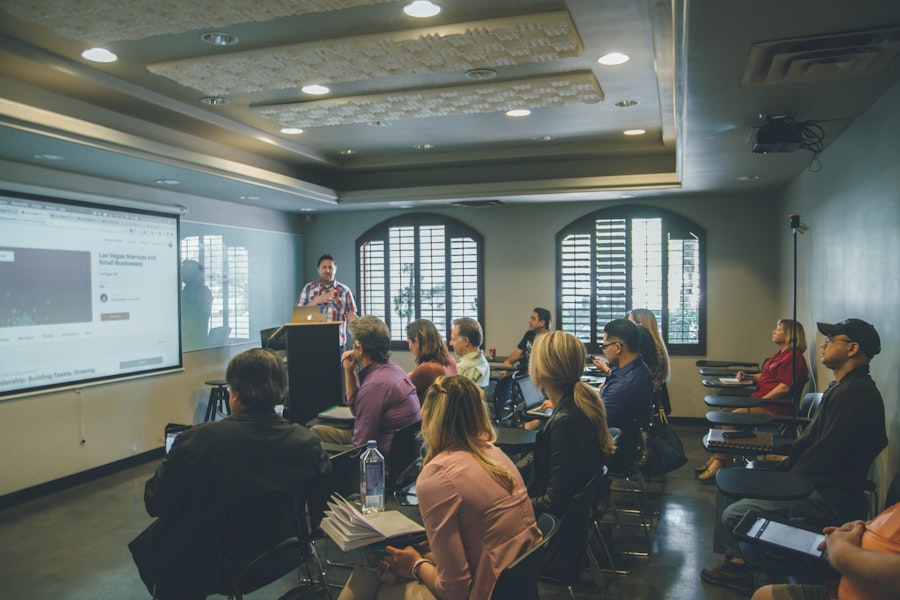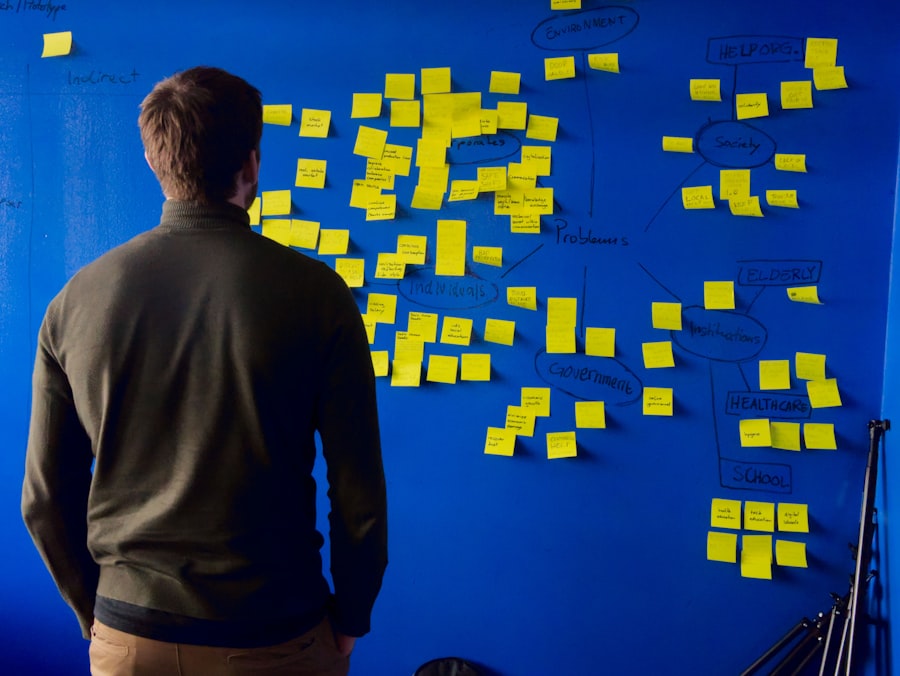Critical thinking is a cognitive skill that enables individuals to analyze, evaluate, and interpret information systematically and logically. This ability involves using reasoning and evidence to make informed decisions and solve problems effectively. In today’s information-rich and rapidly changing world, critical thinking is crucial for navigating complex issues and making sound judgments.
The process of critical thinking encompasses several key components:
1. Analysis: Breaking down complex information into smaller, more manageable parts. 2.
2. Evaluation: Assessing the credibility and relevance of information sources.
3. Interpretation: Understanding the meaning and implications of data and arguments.
4. Inference: Drawing logical conclusions based on available evidence. 5.
5. Explanation: Clearly communicating reasoning and conclusions to others. Critical thinking is not merely about being skeptical or critical of everything. Instead, it involves maintaining an open mind, cultivating curiosity, and willingly questioning assumptions while exploring diverse perspectives.
This approach allows individuals to consider multiple viewpoints and make more balanced decisions. Additionally, critical thinking requires the ability to identify and evaluate arguments, detect inconsistencies and logical fallacies, and make well-reasoned judgments. It also involves creative and innovative thinking, as well as the willingness to revise one’s beliefs when presented with new evidence.
Developing critical thinking skills is an ongoing process that requires practice and reflection. It involves cultivating intellectual humility, acknowledging one’s own biases and limitations, and being open to changing one’s mind when faced with compelling evidence. Critical thinking is not just a skill but a mindset that can be applied to various aspects of life, from personal decision-making to professional problem-solving.
Key Takeaways
- Critical thinking involves analyzing, evaluating, and interpreting information to make informed decisions and solve problems.
- Critical thinking skills are essential for making sound decisions, understanding complex issues, and effectively communicating ideas.
- Strategies for developing critical thinking include asking probing questions, considering different perspectives, and seeking evidence to support conclusions.
- Practicing analytical thinking involves breaking down complex problems into smaller, manageable parts and examining the relationships between them.
- Enhancing problem-solving abilities involves identifying and defining problems, generating and evaluating solutions, and implementing the best course of action.
- Applying critical thinking in everyday life can improve decision-making, communication, and problem-solving in various personal and professional situations.
- Resources for further developing critical thinking skills include books, online courses, workshops, and educational websites.
The Importance of Critical Thinking Skills
The Importance of Critical Thinking in the Workplace
In the workplace, employers highly value employees who possess critical thinking skills, as they can analyze complex problems, make sound decisions, and develop innovative solutions. These skills are vital for effective communication, allowing individuals to articulate their ideas and persuade others.
Critical Thinking in Personal Life
In personal life, critical thinking skills are crucial for making informed decisions about various aspects, including health, finances, relationships, and more. They enable individuals to engage in meaningful discussions and debates, evaluate the credibility of information sources, and make well-informed decisions.
The Broader Benefits of Critical Thinking
Furthermore, critical thinking skills are essential for ethical reasoning and moral decision-making, as they allow individuals to consider the consequences of their actions and make principled judgments. Overall, critical thinking skills are vital for navigating the complexities of modern life and achieving success in the 21st century.
Strategies for Developing Critical Thinking

There are several strategies that can help individuals develop their critical thinking skills. One strategy is to ask questions and seek evidence. This involves being curious and inquisitive, and not taking things at face value.
It also involves seeking out different perspectives and considering alternative explanations. Another strategy is to practice active listening and engage in thoughtful dialogue with others. This involves being open-minded and receptive to new ideas, as well as being willing to challenge one’s own beliefs.
Furthermore, individuals can develop their critical thinking skills by practicing reflection and self-assessment. This involves taking the time to think about one’s own thought processes and biases, as well as seeking feedback from others. Additionally, individuals can develop their critical thinking skills by engaging in activities that require problem-solving and decision-making.
This can involve playing strategy games, solving puzzles, or participating in debates and discussions. Finally, individuals can develop their critical thinking skills by seeking out diverse sources of information and being willing to consider different viewpoints. This involves being intellectually humble and intellectually courageous, as well as being willing to revise one’s beliefs in light of new evidence.
Practicing Analytical Thinking
Analytical thinking is a key component of critical thinking, as it involves the ability to break down complex problems into smaller components and analyze them systematically. One way to practice analytical thinking is by breaking down a problem into its constituent parts and identifying the underlying causes and relationships. This involves being systematic and methodical in one’s approach, as well as being willing to consider different factors and variables.
Another way to practice analytical thinking is by using logic and reasoning to evaluate arguments and evidence. This involves being able to identify assumptions, detect inconsistencies, and evaluate the strength of evidence. It also involves being able to construct well-reasoned arguments and make sound judgments based on evidence.
Furthermore, individuals can practice analytical thinking by engaging in activities that require data analysis and interpretation. This can involve analyzing trends, patterns, and relationships in data sets, as well as drawing conclusions based on evidence. Additionally, individuals can practice analytical thinking by engaging in activities that require problem-solving and decision-making.
This can involve solving puzzles, playing strategy games, or participating in simulations that require making complex decisions.
Enhancing Problem-Solving Abilities
Problem-solving abilities are a key aspect of critical thinking, as they involve the ability to identify problems, generate solutions, and evaluate their effectiveness. One way to enhance problem-solving abilities is by practicing creative thinking and brainstorming. This involves generating multiple ideas and considering different possibilities before settling on a solution.
Another way to enhance problem-solving abilities is by using a systematic approach to problem-solving. This involves breaking down a problem into its constituent parts, identifying the underlying causes, and considering different factors and variables. It also involves evaluating different solutions and considering their potential consequences.
Furthermore, individuals can enhance their problem-solving abilities by seeking out diverse perspectives and considering alternative explanations. This involves being open-minded and receptive to new ideas, as well as being willing to challenge one’s own beliefs. Additionally, individuals can enhance their problem-solving abilities by seeking feedback from others and being willing to revise their solutions based on new information.
Applying Critical Thinking in Everyday Life

Decision-Making and Problem-Solving
When making decisions about health, finances, relationships, and other aspects of life, individuals can apply critical thinking skills to evaluate different options, consider the potential consequences of different choices, and make informed decisions based on evidence.
Evaluating Information and Engaging in Discussions
Critical thinking skills are also essential when evaluating sources of information and engaging in discussions and debates. This involves being skeptical of information that seems too good to be true, seeking out diverse sources of information, and considering different viewpoints before forming an opinion.
Ethical Reasoning and Moral Decision-Making
Furthermore, critical thinking skills are crucial when engaging in ethical reasoning and moral decision-making. This involves considering the consequences of one’s actions, evaluating different ethical principles, and making principled judgments based on evidence.
Resources for Further Developing Critical Thinking Skills
There are many resources available for further developing critical thinking skills. For example, there are numerous books and online courses that provide instruction on critical thinking skills and strategies for developing them. There are also websites and online forums where individuals can engage in discussions and debates with others who have different perspectives.
Furthermore, there are workshops and seminars that provide opportunities for individuals to practice critical thinking skills in a group setting. There are also games and puzzles that can help individuals develop their problem-solving abilities and analytical thinking skills. Additionally, there are organizations that provide resources for further developing critical thinking skills, such as the Foundation for Critical Thinking and the Center for Critical Thinking.
These organizations offer workshops, seminars, publications, and other resources for individuals who want to enhance their critical thinking skills. In conclusion, critical thinking is an essential skill for success in today’s complex world. It involves the ability to analyze, evaluate, and interpret information in a systematic and logical manner.
Critical thinking skills are important for making informed decisions, solving complex problems, and engaging in meaningful discussions. There are many strategies for developing critical thinking skills, such as asking questions, seeking evidence, practicing reflection, engaging in problem-solving activities, and seeking out diverse sources of information. Individuals can also enhance their problem-solving abilities by practicing creative thinking, using a systematic approach to problem-solving, seeking out diverse perspectives, considering alternative explanations, seeking feedback from others, and being willing to revise their solutions based on new information.
Critical thinking can be applied in everyday life when making decisions about health, finances, relationships, evaluating sources of information, engaging in discussions and debates, engaging in ethical reasoning and moral decision-making. There are many resources available for further developing critical thinking skills, such as books, online courses, websites, online forums workshops seminars games puzzles organizations such as the Foundation for Critical Thinking and the Center for Critical Thinking that provide workshops seminars publications other resources for individuals who want to enhance their critical thinking skills.
FAQs
What are critical thinking skills?
Critical thinking skills are the ability to analyze, evaluate, and interpret information in a logical and systematic manner. It involves being able to think independently, make reasoned judgments, and solve problems effectively.
Why are critical thinking skills important?
Critical thinking skills are important because they enable individuals to make informed decisions, understand complex issues, and effectively communicate their ideas. These skills are essential for success in both academic and professional settings.
How can I develop critical thinking skills?
You can develop critical thinking skills by practicing activities such as analyzing arguments, evaluating evidence, and solving problems. Engaging in discussions, reading diverse perspectives, and seeking out challenging tasks can also help improve critical thinking abilities.
What are some strategies for improving critical thinking skills?
Strategies for improving critical thinking skills include asking probing questions, considering alternative viewpoints, and examining assumptions. Additionally, practicing active listening, seeking feedback, and engaging in reflective thinking can also enhance critical thinking abilities.
Can critical thinking skills be learned and improved over time?
Yes, critical thinking skills can be learned and improved over time through consistent practice and exposure to diverse experiences. By actively engaging in activities that require critical thinking, individuals can develop and refine their analytical and reasoning abilities.



